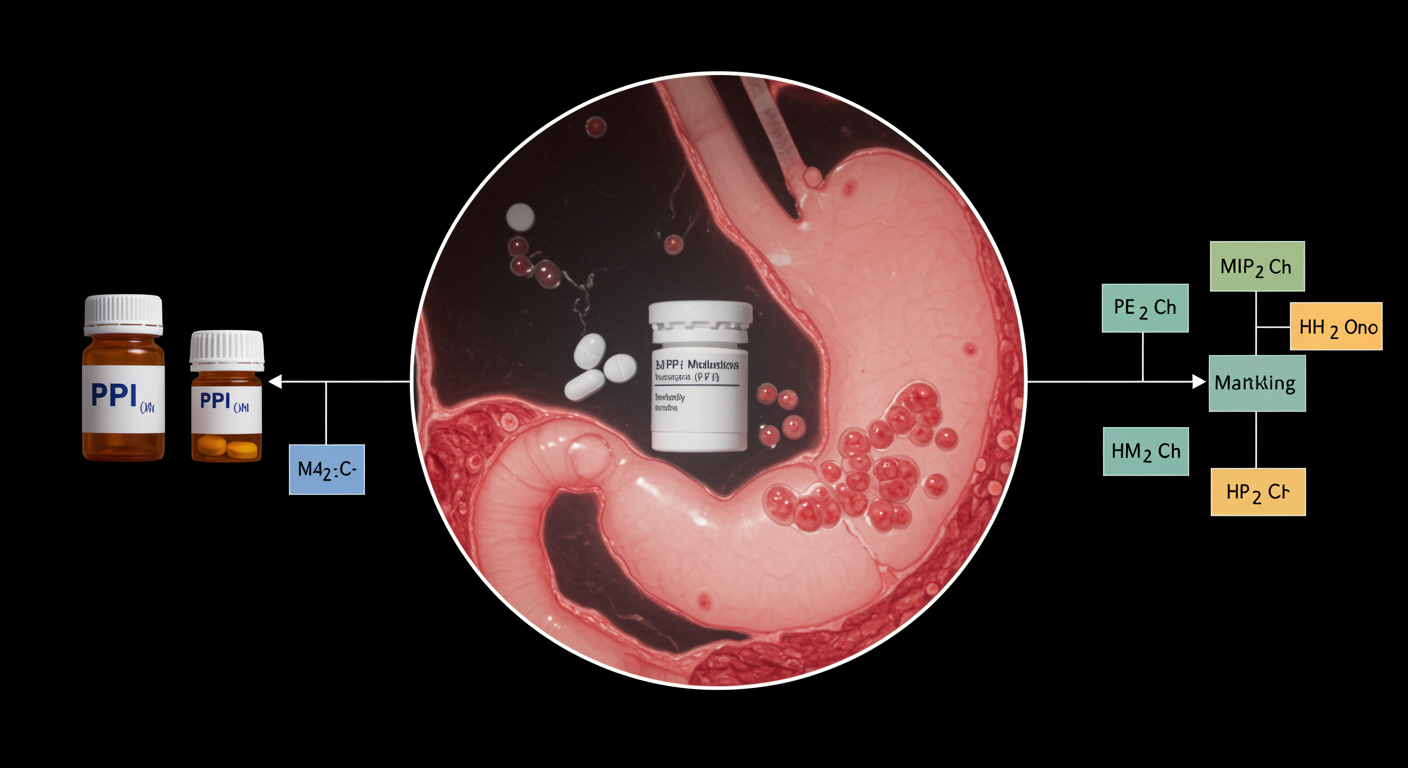Should You Stop PPIs If You Develop Fundic Gland Polyps?
Most patients with PPI-associated fundic gland polyps can safely continue their proton pump inhibitor therapy if there is a clear medical indication, as these polyps are generally benign with very low malignant potential. However, patients with high-risk features (more than 20 polyps or polyps larger than 1 cm) may need closer monitoring or consideration of PPI discontinuation based on individual risk-benefit assessment.
Dr. Kumar’s Take
This is a common clinical dilemma that causes unnecessary anxiety for both patients and doctors. The key message is that most fundic gland polyps from PPIs are benign and don’t require stopping the medication if it’s medically necessary. The cancer risk is extremely low - much lower than the risks of untreated GERD or other conditions requiring PPI therapy. However, we do need to be more selective about PPI use and regularly reassess whether continued therapy is truly needed.
What the Research Shows
This clinical review examined the relationship between proton pump inhibitor use and fundic gland polyp development, analyzing the natural history, malignant potential, and management strategies for these lesions. The analysis included endoscopic studies, histological assessments, and long-term follow-up data to determine appropriate clinical responses.
The research demonstrates that while PPI-associated fundic gland polyps are common, they have distinct characteristics that differentiate them from sporadic polyps and carry minimal risk for malignant transformation in most cases.
How This Works (Biological Rationale)
Long-term PPI therapy leads to chronic acid suppression, which causes compensatory hypergastrinemia as the body attempts to stimulate acid production. Elevated gastrin levels promote gastric mucosal changes including hyperplasia of fundic glands, which can develop into fundic gland polyps.
These PPI-associated polyps typically have characteristic histological features including cystic dilation of fundic glands and are usually multiple and small. Unlike sporadic fundic gland polyps, PPI-associated polyps rarely harbor dysplastic changes or progress to malignancy.
Results in Real Numbers
- Polyp prevalence: 25-40% of long-term PPI users develop fundic gland polyps
- Malignant potential: <0.1% risk of malignant transformation in PPI-associated polyps
- High-risk features: <5% of patients have >20 polyps or polyps >1 cm
- Regression rate: 60-80% of polyps regress within 6-12 months of PPI discontinuation
- Recurrence: 90% recurrence rate if PPIs are restarted after polyp regression
- Surveillance intervals: Annual endoscopy recommended for high-risk features
Safety, Limits, and Caveats
The clinical recommendations are based primarily on observational studies and expert consensus rather than randomized controlled trials. Individual patient factors including family history, genetic predisposition, and concurrent risk factors may influence management decisions.
The research also doesn’t provide definitive guidance on optimal surveillance intervals or the long-term consequences of continued PPI therapy in patients with fundic gland polyps.
Practical Takeaways
- Reassure patients that most PPI-associated fundic gland polyps are benign and don’t require stopping treatment
- Continue PPI therapy if there is a clear medical indication, regardless of small, few fundic gland polyps
- Consider closer monitoring or PPI discontinuation for patients with high-risk features (>20 polyps or >1 cm size)
- Regularly reassess the necessity for continued PPI therapy in all patients
- Use the lowest effective PPI dose and consider intermittent therapy when appropriate
- Discuss the risk-benefit ratio of continued PPI therapy with patients who develop polyps
Related Studies and Research
- Trends in Use of Proton Pump Inhibitors Among Adults in the United States
- Pharmacology of Proton Pump Inhibitors
- ACG Clinical Guideline: Guidelines for the Diagnosis and Management of Gastroesophageal Reflux Disease
- Physiology, Stomach
- Episode 25: The Great GERD Mistake - How Medicine Made Heartburn Worse and How to Fix It
FAQs
Are fundic gland polyps from PPIs dangerous?
PPI-associated fundic gland polyps are generally benign with extremely low malignant potential (<0.1% risk), making them much less concerning than the conditions PPIs are used to treat.
Will the polyps go away if I stop my PPI?
Most fundic gland polyps (60-80%) will regress within 6-12 months of PPI discontinuation, but they typically recur if PPI therapy is restarted.
How often do I need endoscopy if I have these polyps?
Most patients with small, few polyps don’t need increased surveillance, but those with high-risk features may benefit from annual endoscopy.
Can I switch to a different PPI to avoid polyps?
All PPIs can cause fundic gland polyps through the same mechanism (hypergastrinemia), so switching between different PPIs won’t prevent polyp formation.
Should I be worried about cancer risk from these polyps?
The cancer risk from PPI-associated fundic gland polyps is extremely low and shouldn’t be a primary concern in treatment decisions - discuss your individual risk profile with your healthcare provider.
Bottom Line
Most patients with PPI-associated fundic gland polyps can safely continue their proton pump inhibitor therapy if medically indicated, as these polyps are generally benign with minimal malignant potential. Treatment decisions should focus on the ongoing need for PPI therapy rather than polyp presence alone.


